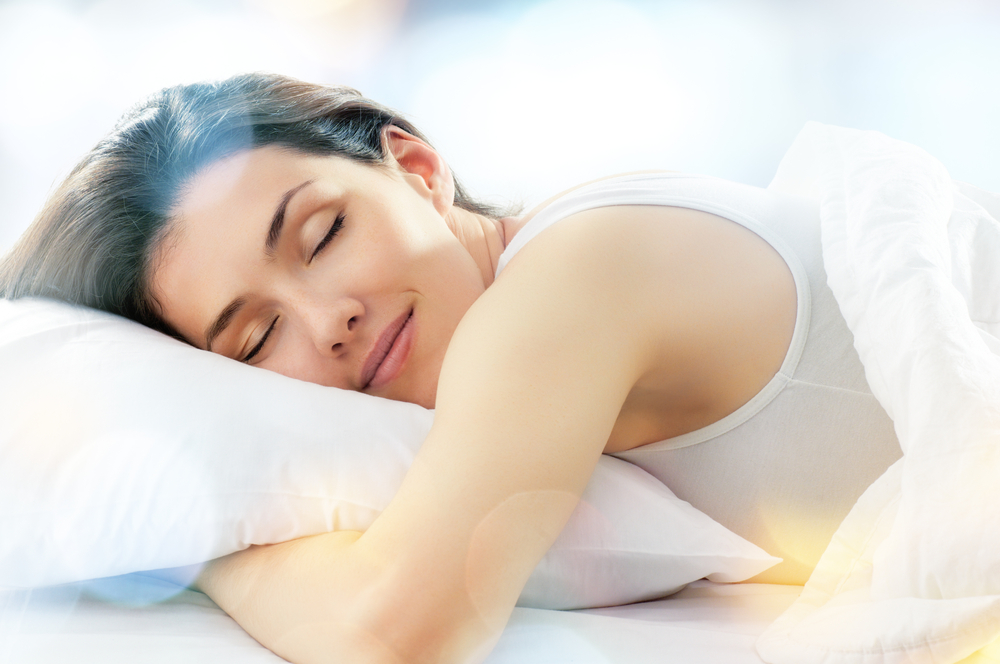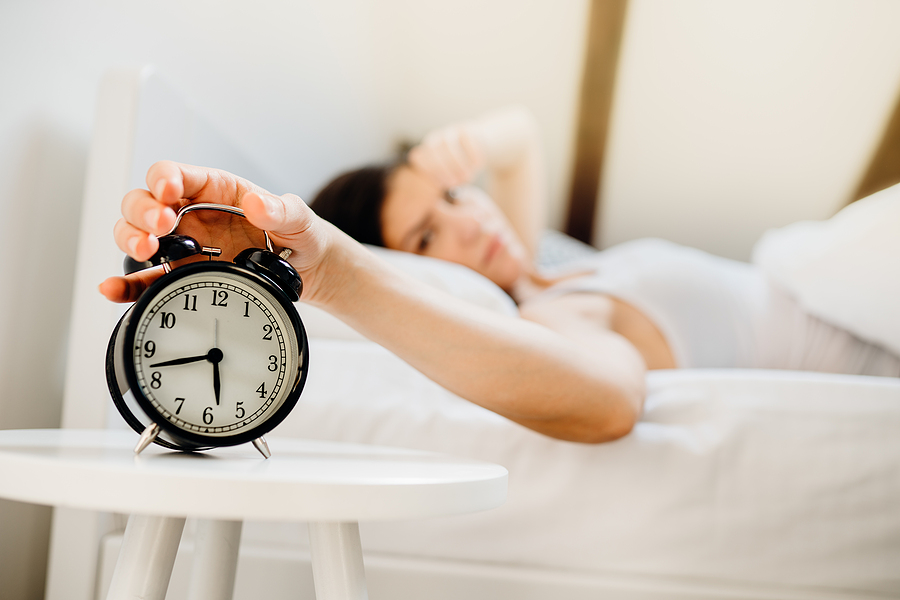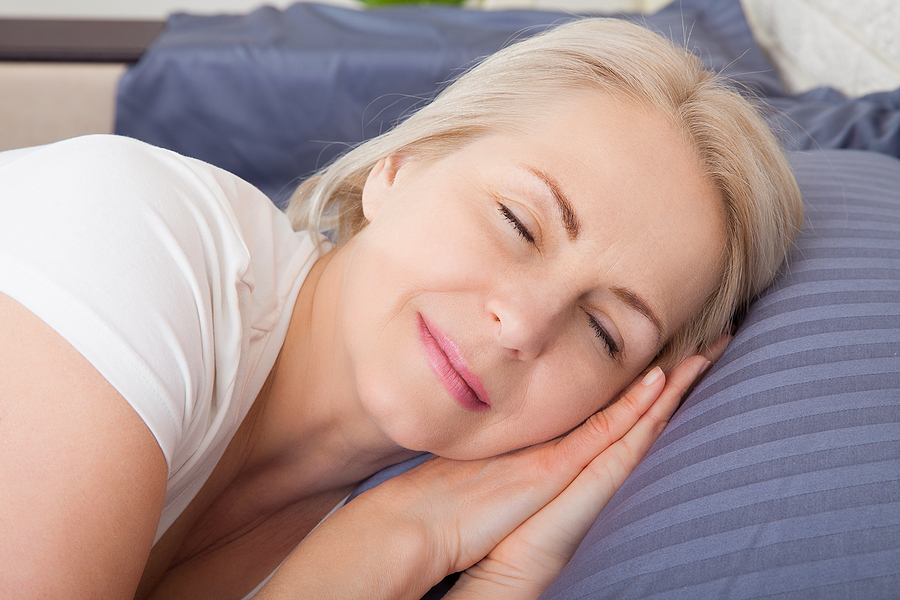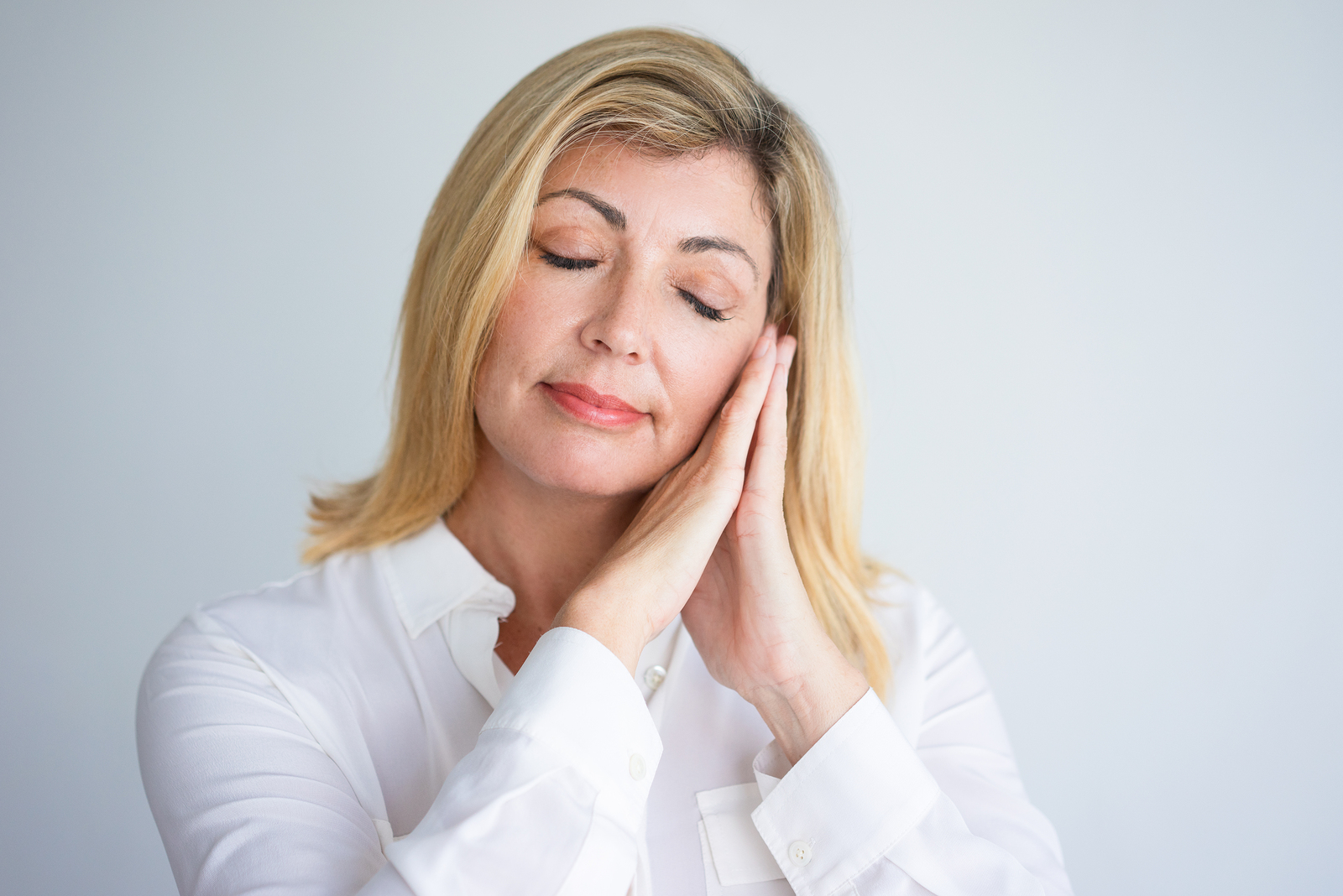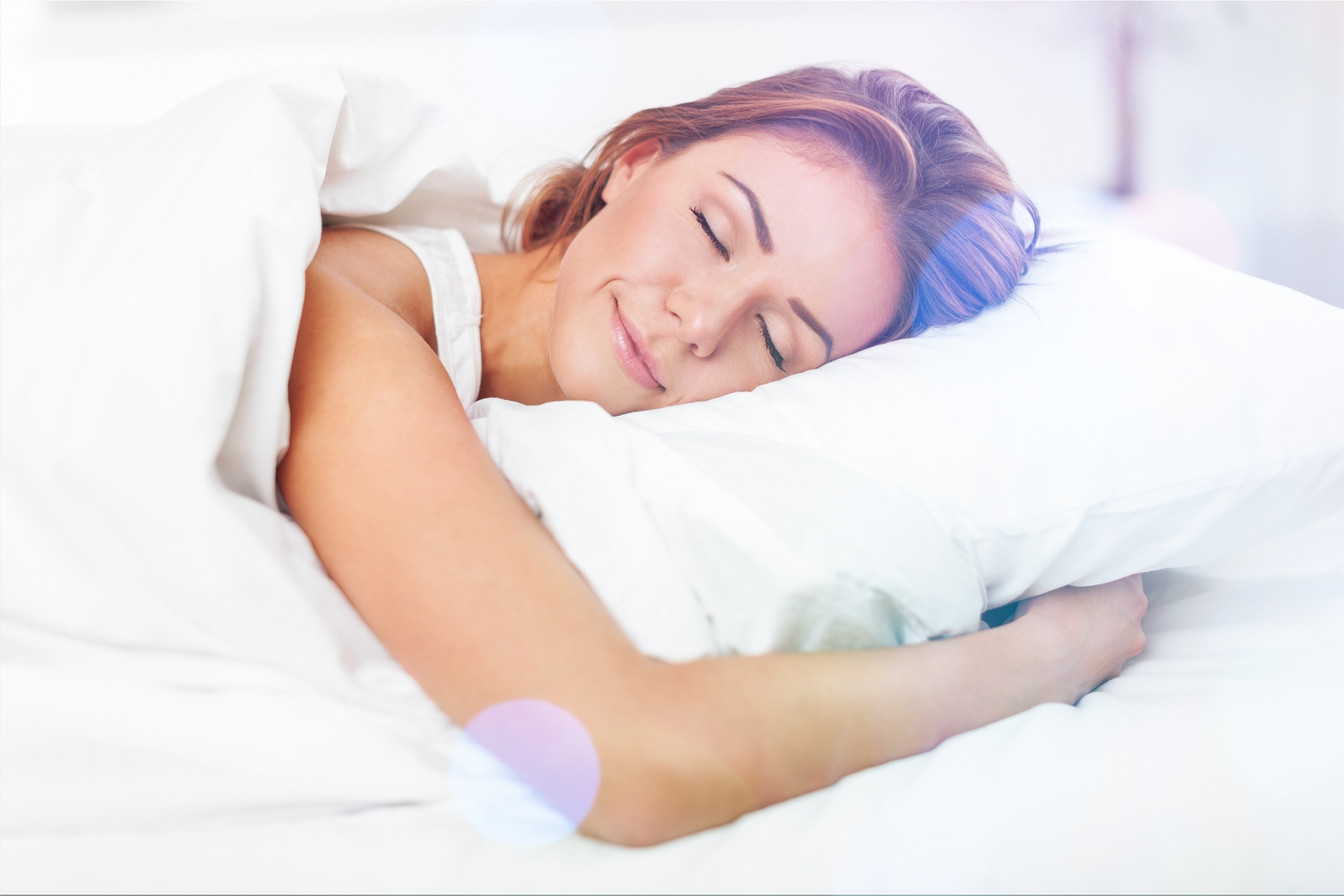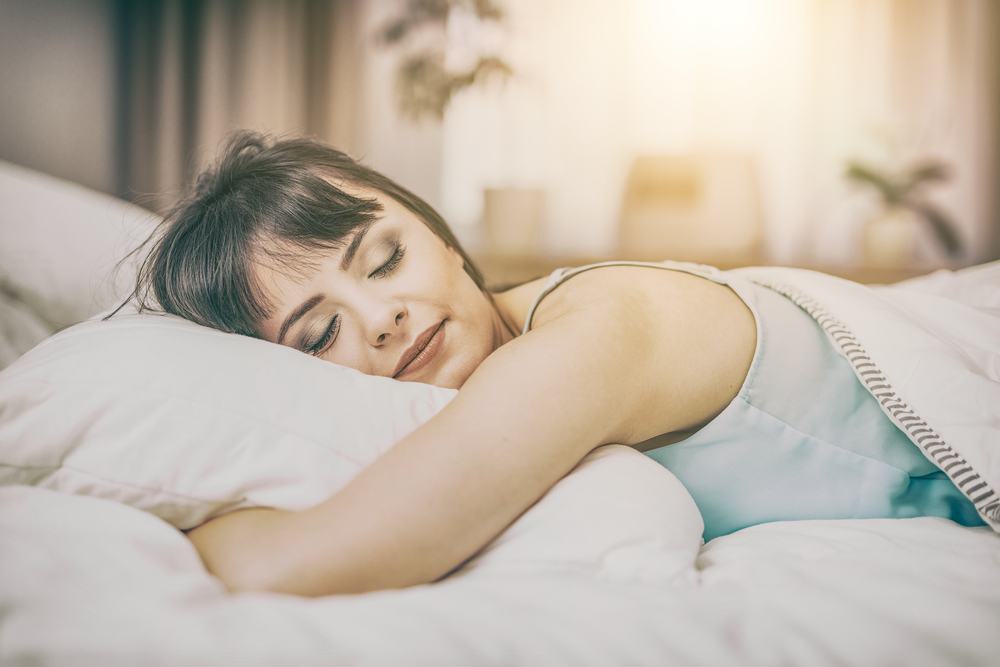It’s no secret that many women today will say they need more sleep. Even when we do finally get to go to bed, the quality of our sleep just isn’t what it should be. All day long we race from one task to the next, so when we lie down to rest our minds continue to spin. And we can get so bogged down by thoughts of what we have done, and what’s left to do, that sleep escapes us.
We all know that good, sound sleep is vital to our well-being, but you can’t just make yourself go to sleep in an instant. In fact, sometimes the harder you try the harder it is to drift off!
If you have trouble sleeping, there could be many causes, but often I see a direct connection between insomnia and stress. Our sleep cycles (circadian rhythms) are directly connected to our stress hormones. Many common sleep aids, such as Tylenol PM, Lunesta or Ambien, don’t really address the source of sleeplessness. Even worse, they often have a “hang-over” effect which leaves users feeling groggy and foggy in the morning.
Thankfully, these sleep aids aren’t our only option. Nature has given us plenty of ways to promote restful sleep. You can get your sleep cycle back in balance by addressing the cause of the problem. And in the meantime, there are some safe and natural ways to help you get some much-needed rest. Let’s look at this a little closer.
Herbal sleep aids
For hundreds of years, women have been using these herbs to promote relaxation and rest. I’ve promoted herbs at in my practice for decades and my patients have seen wonderful results.
-
Passionflower (passiflora incarnate): Scientists believe this soothes the nervous system through increasing the availability of GABA, a relaxing chemical. It’s calming effects may also be determined by the same receptors in the brain which are sensitive to prescription-strength sedatives, but without the troubling side effects. Passionflower can be found in powders, tinctures, teas and infusions.
-
Chamomile Roman or English: (matricaria recutita, chamaemelum nobile): This herb’s relaxing and calming effects are most commonly attributed to the flavonoid apigenin. As with passionflower, apigenin appears to increase the availability of GABA in the brain. It is used commonly to treat sleeplessness, anxiety and nervousness.
-
Kava kava (piper methysticum) The phytochemicals found in the root of the kava plant are thought to work through increased binding to GABA, dopamine and opiate receptors in the brain, and therefore help to relieve anxiety, insomnia and restlessness. The food and drug administration had concerns about kava and liver damage in 2002, but these concerns may have been related to overuse of the product or inferior product quality.
-
Valerian (valeriana officinalis) This herb was used in ancient Greece and in Rome as a mild sedative and relaxant. It has been proven effective as a sleep aid and anti-anxiety agent in both animal studies and in clinical trials. It works to relieve the brain’s nervous tension by binding to GABA receptors.
Good sleep habits
There are other lifestyle factors that can help considerably in restoring restful sleep. Building good sleep habits can be the key to getting back on track. These include:
- Nutrition/Hydration: Consider what and when you’re eating and drinking. Some things to pay close attention to are sugar, caffeine, alcohol. Keep track and see if you discover a pattern between your intake of these stimulants and your disrupted sleep.
- Establish a routine: Set a consistent bedtime if you can. Try to unplug and wind down one hour before bed. If you exercise, consider exercising in the morning.
- Assess your environment: Try to make sure your room is dark, fairly quiet and your bed is comfortable for you. Don’t let light, clocks, phones or other electronics disturb your rest.
- Think about your stress level: Cortisol is the stress hormone which is linked to your circadian rhythms. Supporting good adrenal health and cortisol balance can do a lot to help reset your sleep-wake pattern.
If you want to learn more, see our articles on adrenal imbalance and sleep.
Our body’s own sleep-support
Our own bodies have their own prescription for helping us sleep. When my patients come to me with sleep troubles, depending on their unique situation, I may use supplements to help them gently return to their normal sleep-wake pattern. These combine natural herbs, minerals and molecules to help you sleep naturally, without waking up groggy or feeling hung-over. Talk to your practitioner to see if you would benefit from supplements.
Note: If you are currently taking antidepressants or any medications for sleep or mood disorders, be sure to talk to your healthcare provider before stopping your medication or trying any of the supplements mentioned in this article.
- Phosphatidylserine (PS) is a molecule which is a basic component of our brain and of our nerve cell membranes. It may help cell-to-cell messaging and communication, and also help interaction between the hypothalamus, pituitary and adrenal glands. This allows for a more effective response to stress and so helps sleep.
- Melatonin is a hormone that is naturally produced by the gland in your brain known as the pineal gland (whenever it senses the sun going down, or you dim the lights). As melatonin increases, our body becomes less alert and more ready for sleep. Melatonin begins to decrease after puberty, more so even after the age of 40. Supplemental melatonin is very safe and beneficial for people with insomnia. You may want to think about discussing this option with your healthcare provider.
- 5-hydroxytryptophan (5-HTP) is an amino acid which is produced naturally in our bodies during the production of melatonin and serotonin. The supplemental form is extracted from the seeds of a plant named griffonia. 5-HTP supplements can be very helpful for the release of melatonin without accessing the brain’s light-regulation system, by increasing serotonin. This makes it beneficial as a sleep aid.
Minerals and vitamins to calm and support restful sleep
What about B Vitamins? As a general rule, it’s best to take B vitamins in the morning, or in the first part of your day. They help to decrease anxiety, and because of this, they are often included in natural sleep aids. However, taking B vitamins later in the day can sometimes make people feel more alert. Some women report an energy boost from the B-vitamin so in that case, it’s best to take them in the morning and after the noon meal or an afternoon snack. This may help to avoid the mid-afternoon slump which many of us feel, especially those who have an adrenal imbalance.
Some women are surprised to hear certain natural vitamins and minerals can be beneficial for sleep. Research has shown improvements in anxiety and stress with supplementation with vitamins and minerals. Low magnesium in particular has been found in studies to be associated with anxiety and poor sleep. The ratio of calcium to magnesium has also been correlated with perceived levels of anxiety and stress.
Combining factors
Feeling good involves looking at multiple factors. Sleep is indeed important to health, but it doesn’t tell the whole story. Our sleep patterns are determined by our environment, our diet our stress levels just to name a few. My wish for you is that you will find an approach which works for you to, not only to sleep well, but one that addresses your entire health picture.
MarcellePick.com offers quality nutrient support, herbal stress support and our one-on-one phone support is always there for you. You don’t need to rely on the sleeping pills offered in the drug store. You can make choices that are uniquely right for you and that are natural.

